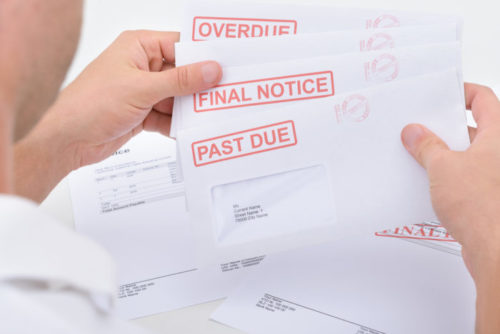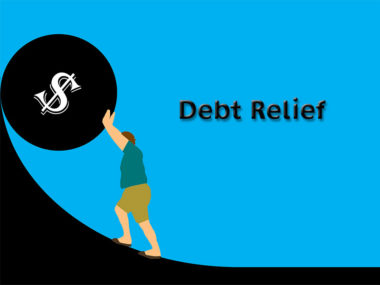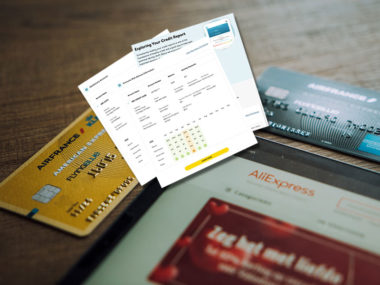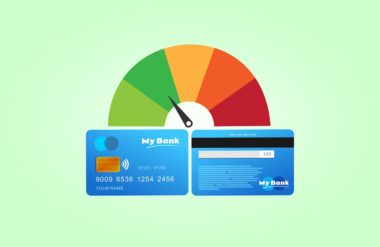A credit card delinquency means the cardholder has not made the required monthly payments due. Credit card companies report your payment activity to the major credit bureaus. If you miss payments and the card account is reported as delinquent, it will negatively impact your credit score.
After all, payment history makes up 35% of your credit score. The delinquent account will have devastating financial impacts. If you don’t take steps to address the situation, you may not be able to qualify for a loan or other credit card products in the future.
Table of Contents
What Happens When You Have a Delinquent Account?
If you fail to make one or more credit card payments, your credit card account will become delinquent. Delinquent credit card accounts are subject to late fees, finance charges, and credit card suspension until the account is brought current. If you don’t address the situation and make arrangements with the card provider to make payments, your credit card account will be closed and charged off as a bad debt.
All the activity will be reported to the major credit bureaus. The late payments, delinquent account status, closed account and discharge will be reported and remain on your credit report for seven years. Besides negatively impacting your credit score, each time a lender, landlord, or creditor reviews your credit report, they will see the delinquency, making it difficult to qualify for a home mortgage, car loan, or other credit cards.
Overlooking a credit card payment happens. What’s most important is to handle the situation as quickly as possible before the matter gets worse. A credit card issuer can close your card account at any time — it’s best to take action as quickly as possible to avoid the consequences. Here’s what may happen if the situation isn’t addressed in a timely manner:
- Less than 30 days: A late payment of 30 days or less will not show up on your credit report. You may even be able to have the late fee waived if you don’t typically make late credit card payments. Contact the credit card issuer and request a refund of the late fee.
- 30 to 59 days: If your payment due date was April 1 and you didn’t make a payment by April 31, your card payment is 30 days late. It will likely be reported to the credit bureaus, although some credit card companies won’t report late payments until they reach the 60-day mark.
- 60 to 89 days: Once your card payment is past due by 60 days or longer, you can expect to see a drop in your credit score. The higher your credit score, the more it will drop. It’s likely you’ll also receive a written notice letting you know they will be raising your annual percentage rate (APR) to a penalty rate as high as 29.99%. It’s advisable to pay off your balance as quickly as possible to correct the situation — the card issuer may not review your account status to remove the penalty APR in place (even after you pay off the delinquency) for up to six months.
- 90 to 119 days: If you still haven’t made any payments, your credit card account has fallen behind on four payments. The first one is 90 days late or more, the second one is at least 60 days late, the third payment due is 30 days late or more, and the most recent past due payment is one day late or more. Fees and finance charges continue to add up, your credit score continues to drop and the credit card company will likely turn your account in for debt collection.
- 120 to 179 days: This is your last opportunity to do something about the situation before your account is closed and charged off. Credit card companies are required by law to declare accounts past due by 180 days as being charged off. Charge offs, loan defaults, foreclosures, and bankruptcies are the worst things that can affect your credit history.
How to Get Out of Delinquency
It can be difficult and time-consuming, but it’s possible to get out of delinquency, no matter how far in you are.
Start Right Away
Start addressing the problem as soon as possible. Taking action now can help you prevent the situation from snowballing into something far worse. Contact the credit card provider and make arrangements to get your account up to date.
Take Stock of Your Situation
How you respond to delinquency depends heavily on your financial situation. Is your account delinquent because you can’t afford to pay your bills or did you simply forget making payments?
You may need to make a payment arrangement plan you can afford with the card company. Or if you tend to overlook your bills, download the credit card app, set up push notifications to remind you of when your payment is due, and schedule automatic payments to avoid late or missed payments.
Make a Budget
Sit down and create a personal budget for yourself, accounting for any of the payments you may have been skipping or avoiding previously. Consider hiding your credit cards to limit your spending and set up a strict budget. Prioritize repaying your debts over discretionary spending such as entertainment, travel, and eating out, until you get your financial responsibilities under control.
Rebuild Your Credit
Delinquency can have a disastrous effect on your credit score. Credit repair will be needed to move forward. The most important thing you can do right away is work on controlling your spending and making your bill payments on time.
If your credit card was closed because of the delinquency, apply for a secured credit card that doesn’t check your credit history to start rebuilding your credit. You can also reach out to credit repair companies for help, although they charge a fee for their services.
Create Healthy Financial Habits
Going forward, you should try and create healthier financial habits. This will make it easier to get out of delinquency, easier to avoid delinquency in the future, and easier to set yourself up for long-term financial success.
Mistakes happen — forgetting to make your credit card payments or having trouble affording it happens. Whatever the reason, take action by contacting your card provider to make arrangements before the delinquency goes too far.
Image Source: https://depositphotos.com/





